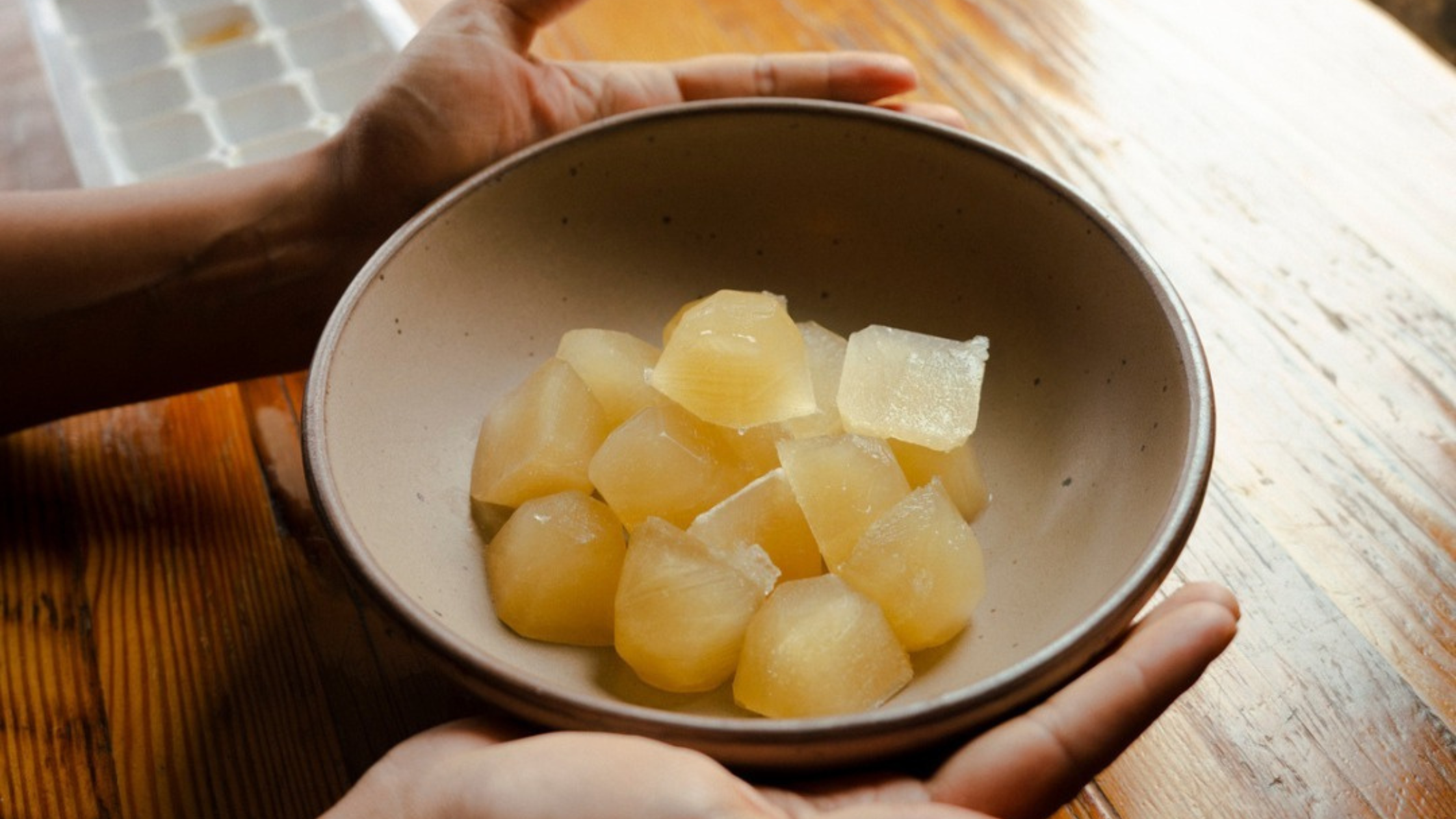The aRelevance of Healthy And Balanced Food: Why Bone Broth Is a Terrific Option for Babies
Bone broth stands out as a nutrient-dense choice, using necessary vitamins and minerals that sustain development and advancement. What are the ideal methods to present bone broth to your little one?
Nutritional Benefits of Bone Broth for Newborns
When you introduce bone broth to your infant's diet regimen, you're giving a nutrient-dense food that offers countless health benefits. Loaded with vital vitamins and minerals, bone broth contains calcium, magnesium, and phosphorus, which support your infant's expanding bones. It's additionally abundant in collagen, helping in the advancement of healthy skin, joints, and connective cells.
Additionally, bone broth is an excellent source of amino acids like glycine and proline, which play a considerable duty in overall growth and muscular tissue development. These nutrients assist advertise a solid body immune system, setting a strong structure for your infant's health.
Furthermore, bone broth is simple to absorb, making it a gentle option for your little one. By including this wholesome food into their meals, you're guaranteeing they obtain vital nutrients essential for their total wellness. So, go on and make bone broth a staple in your infant's diet!
Just How Bone Broth Sustains Food Digestion
Bone broth is loaded with important nutrients that can really benefit your infant's food digestion. It advertises intestine health and assists with nutrient absorption, making it an excellent addition to their diet regimen. By integrating bone broth, you're setting the phase for a healthier gastrointestinal system.
Nutrient-Rich Structure
One of the most nutrient-rich foods you can present to your baby's diet plan is bone broth, which is loaded with vital minerals and amino acids that sustain healthy and balanced food digestion. Rich in collagen, bone broth aids reinforce your baby's intestine lining, making it simpler for their body to take in nutrients. By including bone broth into your infant's dishes, you're giving them a wholesome food that supports their gastrointestinal system successfully.
Promotes Digestive Tract Health
As you introduce bone broth into your baby's diet, you'll discover it not just nurtures yet likewise advertises digestive tract wellness efficiently. Rich in jelly, bone broth helps calm the digestion tract, minimizing inflammation and sustaining a healthy digestive tract lining. This is crucial for babies, as a balanced gut setting lays the structure for general wellness. In addition, the amino acids discovered in bone broth, such as glycine, help in food digestion and can help stop typical tummy problems. By including this nourishing fluid, you're giving your infant with essential nutrients that add to a flourishing digestion system. Ultimately, a healthy digestive tract can affect every little thing from resistance to mood, making bone broth an excellent choice for your child.
Aids Nutrient Absorption
Introducing bone broth not just sustains intestine health yet also plays a significant function in assisting nutrient absorption. When you give your baby bone broth, you're supplying a rich resource of minerals and amino acids that boost their digestion procedures. The jelly in bone broth aids to soothe the intestine lining, boosting its ability to take in crucial nutrients. This means that critical minerals and vitamins from various other foods are extra efficiently made use of by your child's growing body. Furthermore, bone broth consists of collagen, which supports the development of healthy cells and body organs. By including this nutrient-dense liquid right into your infant's diet regimen, you're guaranteeing they obtain the optimum gain from their dishes, advertising general wellness and well-being.
Reinforcing the Body Immune System With Bone Broth

Additionally, bone broth contains glycosaminoglycans, like glucosamine, that can enhance the body immune system's capability to work effectively. This suggests it not only helps in constructing defenses yet additionally aids in recovery from diseases. By including bone broth into your child's diet plan, you're providing a natural resource of nourishment that promotes wellness. Take into consideration making bone broth a staple in your infant's meals, as it can play a vital role in their immune health and advancement.
Easy Ways to Integrate Bone Broth Into Child's Diet regimen
Integrating bone broth right into your baby's diet plan can be basic and satisfying. Beginning by blending a small amount of bone broth right into pureed veggies or fruits. This adds flavor and nutrients without overwhelming your kid. You can additionally make use of bone broth as a base for soups or stews that you plan for the household, guaranteeing your child gets a taste of tasty, well balanced meals.
An additional option is to serve bone broth on its very own. Warm it up and offer it in a sippy mug or small dish-- it's a terrific means to present new tastes. If your child appreciates grains, take into consideration cooking rice or quinoa in bone broth rather than water for added sustenance. Lastly, you can ice up bone broth in ice trays, making it easy to include a dice to various meals whenever you want. These approaches will aid your infant gain the benefits of bone broth effortlessly!
Homemade vs. Store-Bought Bone Broth: What to Choose
Which is better for your infant: homemade or store-bought bone broth? Homemade bone broth offers you full control over the ingredients. You can choose high-quality bones, natural veggies, and natural herbs, ensuring your infant gets one of the most nutrients without ingredients or chemicals. And also, making it at home can be a satisfying experience, permitting you to bond with your baby while preparing wholesome food.
On the other hand, store-bought alternatives are convenient and save you time. However, they usually contain preservatives and may not match the depth of flavor and nourishment you obtain from homemade broth. If you choose store-bought, seek brand names that are natural and without additives.
Eventually, if you have the moment and sources, homemade bone broth is the superior choice for your infant's health and wellness. If you're brief in a timely manner, select a top quality store-bought option as a back-up.
Age-Appropriate Bone Broth Offering Ideas
As your baby expands, it is necessary to customize bone broth offering recommendations to their developing stage. For babies around six months, start with a couple of does of watered down bone broth. Mix it with water or bust milk to make it much easier for them to absorb. As they come to be familiar with tastes, you can slowly present thicker broth by decreasing the dilution.
By the time your little one is around a year old, think about supplying bone broth as a standalone beverage or blending it into soups and stews. Just make sure to keep the broth reduced in salt.
Various Other Healthy And Balanced Foods to Couple With Bone Broth for Infants
When you're aiming to enhance the nutritional worth of bone broth for your infant, think about coupling it with nutrient-dense veggies like carrots and spinach. Entire grain choices, such as quinoa or brown rice, can also add structure and fiber. Furthermore, incorporating healthy and balanced protein resources like shredded chicken or lentils will complete the meal well.

Nutrient-Dense Veggies
Nutrient-dense vegetables are a great enhancement to bone broth for infants, improving both taste and nourishment. Incorporating veggies like carrots, spinach, and sweet potatoes can enhance the vitamin and mineral content of your broth. Carrots provide beta-carotene for healthy vision, while spinach is loaded with iron and calcium, crucial for growth. Sweet potatoes include natural sweet taste and are abundant in fiber, helping digestion.
You can easily blend these veggies right into the broth or offer them as soft, cooked pieces together with it. This not only introduces brand-new flavors but also urges your youngster to appreciate a selection of nutrients. By matching nutrient-dense vegetables with bone broth, you're laying the foundation for a healthy and balanced diet regimen right from the begin.
Whole Grain Options

Healthy Protein Sources
Bone broth pairs wonderfully with numerous healthy and balanced protein sources, additionally boosting your infant's diet regimen. Eggs, when introduced safely, are an additional excellent choice; they're flexible and loaded with nutrients. By combining these healthy protein sources with bone broth, you're offering your baby a well balanced, nourishing dish that sustains their development and development.
Regularly Asked Inquiries
Can Bone Broth Reason Sensitive Responses in Infants?
Yes, bone broth can cause allergies in babies, especially if they're sensitive to certain ingredients. Always consult your pediatrician prior to introducing new foods and monitor for any type of bone broth for infants indicators of allergic reactions after feeding.
Exactly How Should Bone Broth Be Kept for Babies?
You ought to keep bone broth in airtight containers, either in the fridge for as much as a week or in the fridge freezer for as much as 3 months. bone broth for pregnancy. Constantly thaw it properly before serving to your infant
Is It Safe to Provide Bone Broth to Premature Infants?
It's essential to consult your pediatrician prior to presenting bone broth to premature babies. They'll examine your child's specific health and wellness demands and guarantee it's secure, considering their unique nutritional requirements and developing stage. Constantly prioritize experienced advice.
What Are the Signs of Intolerance to Bone Broth in Babies?
When introducing bone broth, look for indications like fussiness, breakout, diarrhea, or vomiting. If your child reveals any one of these responses, it's best to get in touch with a pediatrician before proceeding to supply it.
Can Bone Broth Be Made Use Of as a Meal Replacement for Newborns?
No, you shouldn't use bone broth as a dish replacement for infants. It lacks necessary nutrients required for their development. Rather, integrate it into their diet alongside well balanced dishes for added sustenance and flavor.